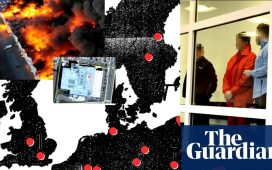South Korea is putting a spotlight on cybersecurity development through a pioneering educational initiative designed to create top-tier AI security experts. The Korea Information Security Industry Association (KISIA) has announced its plans to recruit students for the 2024 AI Security Technology Development Course, focusing on malware, network security, and personal information protection.
A unique blend of free education and comprehensive support is being offered to aspirants, including full coverage of tuition fees, book purchasing costs, mentoring by industry experts, assistance with developing a professional portfolio, and support in applying for copyrights and patents. Additionally, participants will benefit from enhanced career programs and job placement services.
A selection process involving document screening and interviews will whittle down applicants to 25 individuals per category, who will then undergo intensive training and development. Graduates from the program will not only have the edge in cybersecurity, but they will also receive bonus points when applying for the elite ‘S-Developer’ security software development program.
Since its inception in 2022, the AI Security Technology Development Course has successfully cultivated 77 developers adept in the art of cybersecurity. This year, the course will integrate new initiatives such as OpenAI-based cybersecurity capability enhancement programs, data challenges, and participation in information security developer hackathons. The cloud infrastructure will also be enhanced to facilitate smooth project execution for information protection models and services.
The program’s top graduates can expect to be honored with the Ministry of Science and ICT Minister’s Award, asserting the importance South Korea places on fortifying its digital defenses through education. Details for applications are available on the Korean Information Security Education Center’s website.
Current Market Trends:
As cybersecurity threats become more sophisticated with advancements in technology, there is a global trend toward upskilling IT professionals in AI security. In particular, organizations are seeking individuals who are versed not only in traditional cybersecurity but also in leveraging AI to enhance security measures. The market is seeing a rise of specialized cybersecurity educational programs and bootcamps that are designed to meet this growing demand.
The integration of AI in cybersecurity is becoming prevalent as AI can quickly analyze vast amounts of data for threat detection and response. This necessitates a workforce proficient in both domains. South Korea’s initiative aligns with this trend, emphasizing the importance of developing skills at the intersection of AI and cybersecurity.
Forecasts:
The cybersecurity market is expected to continue its rapid growth. According to market research, the global cybersecurity market could reach a valuation in the hundreds of billions by the mid-2020s, driven by rising cyber-attacks and the increasing adoption of IoT and cloud services. The demand for cybersecurity professionals is forecasted to grow exponentially, with millions of unfilled cybersecurity jobs projected globally.
Key Challenges and Controversies:
One of the main challenges in cybersecurity education is keeping curricula up to date with the rapidly changing threat landscape. It is crucial to ensure that the programs remain relevant and provide practical, hands-on experience.
Another controversy relates to the balance between privacy and security. As AI becomes more integrated into cybersecurity, concerns arise regarding surveillance and data privacy. There is ongoing debate about the ethical use of AI in monitoring and defending against cyber threats.
Most Important Questions:
– How will South Korea’s program ensure its curriculum keeps pace with the evolving cybersecurity landscape?
– What measures are taken to address data privacy concerns that arise from integrating AI into cybersecurity?
– How will the success of the graduates in contributing to South Korea’s cybersecurity defenses be measured?
Advantages:
– The free education model eases financial barriers, potentially attracting a more diverse range of students.
– The comprehensive approach, including mentorship and career support, provides a solid foundation for a successful career in AI security.
– Offering specialized training in AI security can position South Korea as a leading nation in cybersecurity.
Disadvantages:
– The competitive nature of the selection process might deter some potential applicants.
– The effect of a free program on established educational institutions and their paid cybersecurity programs is uncertain.
– There may be challenges in ensuring the program remains current with the constantly changing landscape of cybersecurity threats.
For those interested in learning more about South Korea’s initiatives or looking into cybersecurity programs, you might visit the following link:
– Korea Internet & Security Agency (KISA) for information about South Korea’s efforts in internet security and online policy.
– Ministry of Science and ICT for details on the government’s policies on science and technological innovation, including AI and cybersecurity.
– For those specifically interested in cybersecurity education and programs, you might refer to:
– (ISC)², the International Information System Security Certification Consortium, which offers cybersecurity certifications and education globally.










